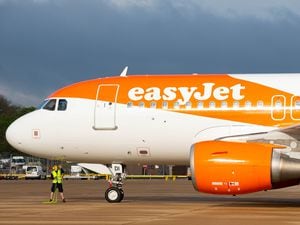Restaurant and hotel staff recruitment 'hit by Brexit uncertainty'
Brexit uncertainty has left restaurants and hotels struggling to recruit staff, it has been claimed.

It comes after a steep fall in the number of people coming to Britain from the EU since the Brexit vote in 2016.
Sectors that rely on non-UK labour have been badly hit, including hospitality, IT, transport, storage and construction.
Willem Vlok, of Old Downton Lodge in Ludlow, said: “This is a big problem and we are struggling to employ the right people. Unfortunately we do not have enough local talent that wants to work in hospitality in the UK.
“We currently have two vacancies. What I am hearing and I can’t confirm if this is true or not but European nationals think the UK does not want them to come and work in the UK.
"Also with the weak pound it is not so attractive to leave your home country and come work in a foreign country.”
Travelodge, which has hotels across the region, is also preparing for post-Brexit Britain, and last month launched a new recruitment programme targeting mums and dads looking to get back into work by offering jobs with hours that fit around the school run, a work buddy and management training.
Peter Gowers, Travelodge chief executive, said: “We are preparing in earnest for post-Brexit Britain. With thousands of new jobs to fill, we need more new colleagues than ever. We see vast untapped potential in parents who want to return to work.”
Hotel chain Millennium and Copthorne is blaming a shortage of workers from the European Union due to the approach of Brexit for contributing to its fall in profits.
The firm, which includes the four-star 138-room Copthorne Hotel Merry Hill-Dudley at Level Street, Brierley Hill, reported a 27.9 per cent fall in pre-tax profits to £106 million for 2018 on revenue down 1.1 per cent from £1 billion to £997m.
The minimum wage increase that came into force in the UK last year has further added pressures to the group’s increasing labour costs.
Jimmy Donaghey, professor of international human resource management at Warwick Business School, said: “More businesses are likely to face similar problems after Brexit.
Tougher restrictions on entry to the UK could create a huge labour shortage, especially of unskilled and semi-skilled workers.“It is hard to envisage how radically scaling back immigration will not lead to severe labour shortages, particularly in the retail, restaurant, and hotel sectors given how they depend on migrant labour.
“We have already seen the number of migrants arriving from Eastern Europe fall for the first time since those countries joined the EU. Yet the UK economy has continued to rely on migrant labour.”





